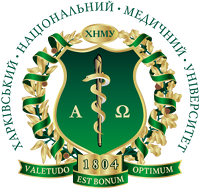Please use this identifier to cite or link to this item:
http://repo.knmu.edu.ua/handle/123456789/23839| Title: | Analysis of the modern pharmaceutical market for herbal anti-ulcer medicines and prospects for creating a new anti-ulcer medicine based on grape seed polyphenols |
| Authors: | Minaieva, Alina Zalyubovska, Olga Tiupka, Tetiana |
| Keywords: | gastric and duodenal ulcers herbal anti-ulcer medicines grape seed polyphenols |
| Issue Date: | 2019 |
| Citation: | Minaieva A. O. Analysis of the modern pharmaceutical market for herbal anti-ulcer medicines and prospects for creating a new anti-ulcer medicine based on grape seed polyphenols / A. O. Minaieva, O. I. Zalyubovska, T. I. Tiupka // Актуальні проблеми транспортної медицини. – 2019. – № 2 (56). – С. 99–107. |
| Abstract: | Introduction. It is known that peptic ulcer refers to human pathology, which has traditionally been widespread among the population and has a constant upward trend. In addition, the problem of the treatment of peptic ulcer includes not only the clinical, but also the socio-economic component, since the majority of patients (about 60%) have a young and average, most working age. The high prevalence of peptic ulcer disease and the unsatisfactory results of treatment require the search for new treatment methods that can affect both local and general mechanisms of ulcerogenesis. The aim of the study was to analyze the modern pharmaceutical market for herbal anti-ulcer medicines and evaluate the prospects for creating a new anti-ulcer medicine based on grape seed polyphenols. Materials and methods. The study of scientific literature sources. Results. Phytotherapy of chronic hyperacid gastritis, gastric ulcer and duodenal ulcer plays an important role in the treatment of these diseases, where the anti-ulcer effect is realized with the help of antioxidant, membrane-stabilizing, anti-inflammatory, reparative effects, which are provided by biologically active substances contained in medicinal plant raw materials; mucous, phytoncides, vitamins, essential oils, tannins and flavonoids. Vitis vinifera L. (grape) is one of the richest sources of polyphenols. The seeds of the Cabernet-Sauvignon grape variety contain the whole gamma of flavanoid and non-flavanoid groups of polyphenols, as well as microelements. This ensures antioxidant, P-vitamin, antibacterial, antiviral activity, as well as the synergistic effect of total grape polyphenols and antioxidant protection enzymes of the human body. None of the known imported analogues has such a potential of biological activity the antioxidant properties of grape seeds’ oligomeric proanthocyanidins are 20 times stronger than vitamin C and 50 times stronger than vitamin E. Phenolic substances from grape seeds, including flavonoids and polyphenols, are of interest because of their ability to absorb free radicals. In addition to the antioxidant effect, polyphenols from grape seeds inhibit certain enzymes that catalyze the release of histamine (which causes inflammation and allergic reactions) into the bloodstream, thus, they also have anti-inflammatory properties. Also they are able to inhibit the growth and development of pathogenic microflora of the gastrointestinal tract, to which H. pylori belongs, while they do not affect the beneficial lactobacilli and bifidobacteria. Conclusions. The analysis of the modern pharmaceutical market for herbal anti-ulcer drugs, the pharmacological properties of grape seed polyphenols, the presence of a sufficient raw material base in Ukraine and its low cost is a theoretical basis for creating new anti-ulcer medicines on their basis. |
| URI: | https://repo.knmu.edu.ua/handle/123456789/23839 |
| Appears in Collections: | Наукові праці. Кафедра клінічної лабораторної діагностики |
Files in This Item:
| File | Description | Size | Format | |
|---|---|---|---|---|
| Minaieva_Odessa_2019.doc | 108 kB | Microsoft Word | View/Open |
Items in DSpace are protected by copyright, with all rights reserved, unless otherwise indicated.

